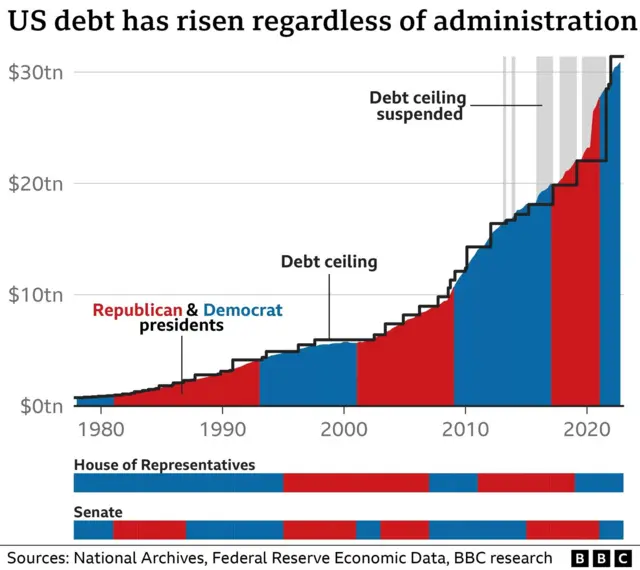Thanks for joining uspublished at 04:03 BST 2 June 2023
The bill, which passed with support from 44 Democrats and 17 Republicans, will now go to President Biden's desk for his signature into law, averting a potentially catastrophic default.
You can read more about how the vote unfolded here.
Today's editors were Jude Sheerin and Marianna Brady. The writers were Sam Cabral and Chloe Kim, with analysis from Jessica Parker.

